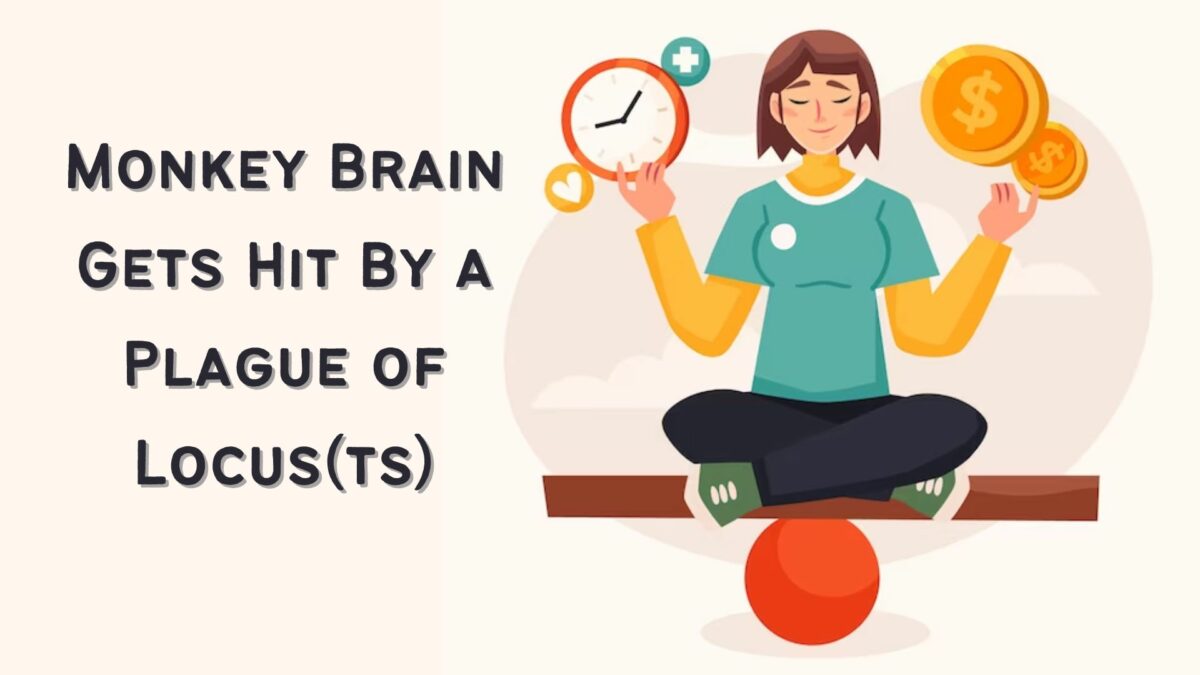“There are no facts, only interpretations.”
– Friedrich Nietzsche

How many of you know the person who tells stories about how great he would have been had not some freak, extraordinary act of insipidly cruel luck stopped him? He would have been the next great sports athlete had he not circled around the wrong stadium for three hours in a blinding sandstorm while tryouts were occurring (disregarding the fact that he’s 100 pounds overweight). He would have invested in Apple at the IPO except his broker misunderstood him and invested in Upple, a penny stock that went bankrupt the very next day (disregarding the fact that he’s never had two pennies to rub together).
Usually, these people are telling you stories about how great they were to explain that their current circumstances are a mere aberration and they’re one step away from achieving the greatness that they once had. Like Al Bundy’s glory days of high school quarterbacking of yore, the stories usually don’t match the person telling them. He’s usually telling you these stories right before trying to hit you up for an investment in his next great business plan selling personalized dust bunnies.
It’s a difficult task to fight the urge to give these people a brain duster like Bill Engvall talks about in the hopes that they’ll come to their senses. Unfortunately, the reality is that, for most of these types of people, even a brain duster won’t affect their outlook on life.
Why not?
It’s because Monkey Brain is pulling the strings in the back of their heads. For those of you who are unfamiliar with Monkey Brain, that’s what I call the limbic system in your brain. It’s the limbic system that wants immediate gratification, eschewing a comfortable retirement later for 183″ flat-screen TVs and Jimmy Choo shoes now. It’s the part of the brain that we share with simians, and if you’re not careful, Monkey Brain will run your life!
How Monkey Brain Uses Locus of Control to Tell Stories About Your World

Where you are depends on where you stand.
From Monkey Brain’s point of view, what you see depends on what you believe.
Events happen all around us. Some of them affect our lives, while many of them don’t. It’s the same with what we do with ourselves. Sometimes our activities have an impact on the world, and sometimes, no matter how hard you push, you’re not moving the wall.
I know. Deep. Tell me more, Captain Obvious.
Our beliefs about our ability to control the outcomes in our lives stems from our locus of control. This is a term coined by Dr. Julian Rotter, where he describes a spectrum of influences in our life. On one end of the spectrum is the irresistible force who believes that he controls everything in his life and that nothing in the world can cause him to deviate from his chosen path. Someone who lives life this way has a completely internal locus of control. He doesn’t believe external forces can affect him at all. He’s also never tried running into the headwind of a hurricane.
The person on the opposite end of the spectrum believes that nothing he can do will have a positive impact on the outcome of his life. Whenever things go wrong or right, it’s because of Fate, the gods, or the moon being perfectly aligned with Jupiter. He has what Rotter would classify as a purely external locus of control.
Can you guess which locus of control Monkey Brain would like for you to have?
Human beings almost never display a binary locus of control. They fall somewhere along the spectrum. If it were up to Monkey Brain, you’d have a very external locus of control, which would allow you to live life very passively, because, after all, what’s the point of trying when something else is going to determine the outcome anyway?
Before you get too far in believing that you should lurch wildly in the direction of total internal locus of control, let me warn you that there are risks in veering too far in that way of thinking as well. It can cause you to fail to acknowledge that sometimes there are impossible obstacles to overcome or that what you’re trying is not realistic. You absolutely cannot invest one penny today and have it be sixty three trillion dollars tomorrow no matter how much you believe you can and no matter how hard you try. It can’t be done. Sorry to burst your bubble. Get a Kleenex, get yourself together, and come back when you’re ready.
If you take too external of a view of life, though, Monkey Brain can derail you from your goals and financial plans. Here are some scripts that Monkey Brain would use to place the blame on anyone but you for things not working out.
- “The system is rigged, so there’s no point in investing.” I’m not going to be handing out Kool-Aid telling you that the stock market is perfect, and I strongly believe that active management does worse over the long run than passive investing; however, doing nothing at all and frolicking today will certainly increase your chances of being a cat food connoisseur in your later life. If you think that Social Security is going to be enough to live on when you get old enough to collect it, then you are fooling yourself.
- “The boss has it in for me. That’s why I can’t get ahead.” Have you ever considered why it seems that the boss doesn’t like you? Have you had a sit-down conversation with your boss to have a constructive discussion about what her expectations for you are and how you can deliver them, go above what is expected, and make your boss shine? I’ve managed people since I was 22, and I have managed people I didn’t personally like, but that never stopped me from promoting them if they did a good job.
- “You have to be some sort of super genius to be successful in business.” While the Wil E. Coyote in me would love to be considered a Super Genius, the reality is that with hard work, a great idea, and a highly attuned ability to listen to people, it’s possible to succeed in business, though it’s not a certainty, either.
Knowing your personal locus of control and moving it more towards an internal focus will help you get moving in your personal, professional, and financial life, but it’s not a cure-all. Just because you want something to succeed doesn’t mean that it will. Life and business are not the fields of dreams. Just because you build it doesn’t mean that people will suddenly show up at your doorstep. I took that attitude when we first started the software development consultancy, and it took a very, very, very short time for me to realize that they weren’t coming. As Grant Cardone says, you have to demand attention; but, demanding attention isn’t enough, as you have to deliver great results after you have someone’s attention. Make the pie grow, and it doesn’t matter if your share of the pie doesn’t grow along with it; you’ll still have more pie.
If you haven’t figured it out by now, I’m a fan of being more internally focused in your locus of control than externally. The more responsibility you take for what happens in your life, the more control you give yourself, and the more action you’ll take to make a better life happen. The better life isn’t guaranteed, as it never is; but sitting back, doing nothing, and racking up credit card debt to spend more time in your man cave eating bags of Doritos certainly won’t get you there unless that’s your true goal in life. If that’s the case, stop reading this website. I can’t help you.
If you’re one of those people who has an external locus of control and you want to become more internally focused, what are some things that you can do?
- Critically review the decisions you’ve made in your life. Think about the main decisions that you made in your life to get you to where you are. Was it truly an external factor that got you there? Could you have done things differently? Could you have chosen to take different actions? There are always other options. You might not like them all and the tradeoffs that they entail, but you always have choices.
- Give yourself a pep talk. Coming to terms with and accepting the fact that your decisions control outcomes in your life more than you might have thought will force you to eat a large slice of humble pie topped with a sprinkling of dirt. It’s pretty easy to beat yourself up and swing the pendulum too far in the other direction in casting yourself as incompetent when it’s not true. Remember to focus on the things that you’re good at and not beat yourself up too much.
- Be more declarative in your self-talk. Instead of the world happening to you, happens to the world. Take control. Use action verbs with I as the subject rather than something else.
The next time you come across the person who tells you the big fish stories about how great things were or how close he came to fame before a meteor struck his car, feel a little pity for the poor guy. Remember, the Monkey Brain is strong within him and he doesn’t realize just where his locus of control is.
Do you have a more internal or external locus of control? How has it affected your life? Have you changed from one to the other? What did you do? Tell us about it in the comments below!
Author Profile
- John Davis is a nationally recognized expert on credit reporting, credit scoring, and identity theft. He has written four books about his expertise in the field and has been featured extensively in numerous media outlets such as The Wall Street Journal, The Washington Post, CNN, CBS News, CNBC, Fox Business, and many more. With over 20 years of experience helping consumers understand their credit and identity protection rights, John is passionate about empowering people to take control of their finances. He works with financial institutions to develop consumer-friendly policies that promote financial literacy and responsible borrowing habits.
Latest entries
 Low Income GrantsSeptember 25, 2023How to Get a Free Government Phone: A Step-by-Step Guide
Low Income GrantsSeptember 25, 2023How to Get a Free Government Phone: A Step-by-Step Guide Low Income GrantsSeptember 25, 2023Dental Charities That Help With Dental Costs
Low Income GrantsSeptember 25, 2023Dental Charities That Help With Dental Costs Low Income GrantsSeptember 25, 2023Low-Cost Hearing Aids for Seniors: A Comprehensive Guide
Low Income GrantsSeptember 25, 2023Low-Cost Hearing Aids for Seniors: A Comprehensive Guide Low Income GrantsSeptember 25, 2023Second Chance Apartments that Accept Evictions: A Comprehensive Guide
Low Income GrantsSeptember 25, 2023Second Chance Apartments that Accept Evictions: A Comprehensive Guide

